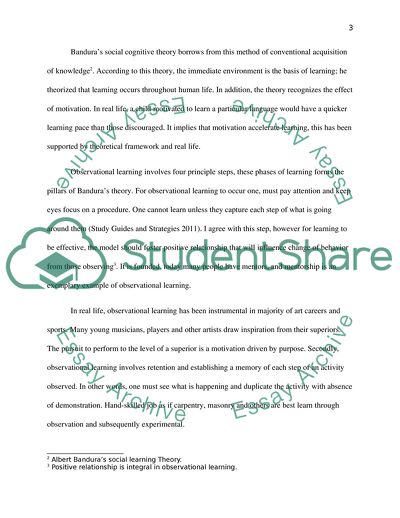Cite this document
(Theories of Knowledge Assignment Example | Topics and Well Written Essays - 1500 words - 3, n.d.)
Theories of Knowledge Assignment Example | Topics and Well Written Essays - 1500 words - 3. https://studentshare.org/philosophy/1853456-there-are-only-two-ways-in-which-humankind-can-produce-knowledge-through-passive-observation-or-through-active-experiment-to-what-extent-do-you-agree-with-this-statement
Theories of Knowledge Assignment Example | Topics and Well Written Essays - 1500 words - 3. https://studentshare.org/philosophy/1853456-there-are-only-two-ways-in-which-humankind-can-produce-knowledge-through-passive-observation-or-through-active-experiment-to-what-extent-do-you-agree-with-this-statement
(Theories of Knowledge Assignment Example | Topics and Well Written Essays - 1500 Words - 3)
Theories of Knowledge Assignment Example | Topics and Well Written Essays - 1500 Words - 3. https://studentshare.org/philosophy/1853456-there-are-only-two-ways-in-which-humankind-can-produce-knowledge-through-passive-observation-or-through-active-experiment-to-what-extent-do-you-agree-with-this-statement.
Theories of Knowledge Assignment Example | Topics and Well Written Essays - 1500 Words - 3. https://studentshare.org/philosophy/1853456-there-are-only-two-ways-in-which-humankind-can-produce-knowledge-through-passive-observation-or-through-active-experiment-to-what-extent-do-you-agree-with-this-statement.
“Theories of Knowledge Assignment Example | Topics and Well Written Essays - 1500 Words - 3”. https://studentshare.org/philosophy/1853456-there-are-only-two-ways-in-which-humankind-can-produce-knowledge-through-passive-observation-or-through-active-experiment-to-what-extent-do-you-agree-with-this-statement.


